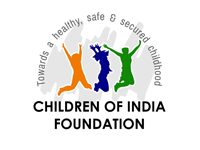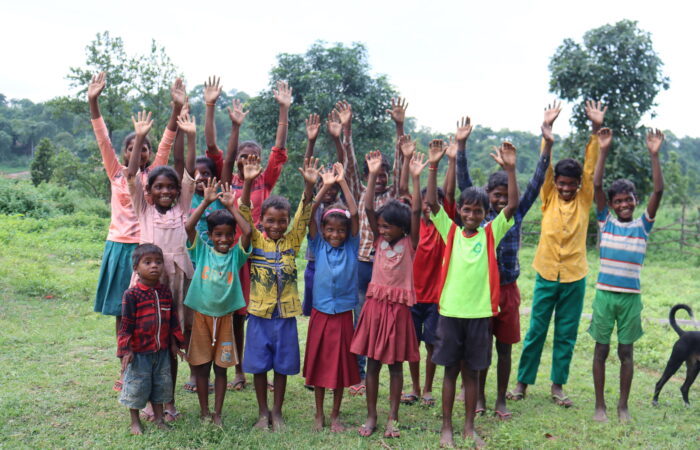In the heart of India, the children of former Devadasis, largely from the Dalit caste, face a hard reality as a result of their mothers’ Devadasi lineage. . These children face a unique challenge – they don’t know who their fathers are, and their mothers have been burdened with the heinous profession of being a Devadasi, all in the name of God.
The Devadasi system, also known as “Devadasi Pratha,” was a traditional practice in some parts of India, especially in Karnataka, Andhra Pradesh, and Telangana, but it is now illegal. This practice entailed dedicating young girls to a temple or deity, effectively transforming them into “servants of God.” These “Devadasis,” or girls from marginalised communities, were expected to perform religious duties such as dancing and singing in temples during religious ceremonies.
However, the Devadasi system gradually became exploitative over time. Devadasis were frequently subjected to social stigma, were sexually abused, and were forced into prostitution. In response to these concerns, the practice was outlawed in India through various laws and legal measures designed to protect people’s rights.
Today, efforts are being made to rehabilitate and empower former Devadasis, as well as to eradicate the social and cultural legacies of this practice.
Dilemma faced by Devadasi Children
Children born to former Devadasis face numerous difficulties and challenges. They must deal with the agony of not knowing who their fathers are Because they are frequently labelled as the children of prostitutes, these children’s existential questions frequently lead to emotional breakdowns from their mothers or societal abuse. Their humiliation and shame are compounded by the constant reminder of their fathers’ absence in various official documents. They are mocked and abused in schools by both teachers and peers. Despite these challenges, these children demonstrate extraordinary resilience and determination to break free from the cycle of social stigma and exploitation. They see education as a way to empower themselves and put an end to poverty.
These childrens have profound, existential problems, yet the solutions they look for are difficult to find, difficult to understand, and frequently brutal. Their questions cause their mothers to become silent and have emotional breakdowns, or they expose them to mistreatment from society since they are perceived as the children of prostitutes. These kids face enormous obstacles as a result of their identity dilemma, and they have now asked the government for assistance by asking that the “father’s name” section be made optional on a number of official application forms.
- In many papers, such as mother and child cards, birth certificates, hospital and Anganwadi registrations, educational forms, scholarship applications, dormitory admissions, job applications, and other government initiatives, the question of whether or not to include the father’s name arises. For many childrens, this ongoing reminder of their absent fathers is a cause of embarrassment and shame rather than merely a bureaucratic inconvenience.
In the words of Devadasi Children
Lakshmi, an undergraduate student who is 17 years old, states, “Even if we find out who our father is, we will never get to see him. We don’t know who he is. The father’s name appears on forms like a threat every time we have to fill one out. The government should be able to make the column optional
Kamala, a 17-year-old nursing student, joins the chorus of protest, stating, “Teachers and other students make fun of and mistreat us in school. I’ve frequently questioned my mother about who my father is. She claims to be both my father, or appaji, and my amma. She shares her pain, tears welling up in her eyes.
The Resilience of These Children
Given the enormous challenges they face, these children’s resilience is truly remarkable. Despite the daunting obstacles in their path, they are solid in their determination to overcome them. How do they manage it? Through empowerment, education, and awareness. These children are on a mission to effect positive change and put an end to long-standing social issues such as child marriage and the Devadasi system.
Education is more than just a means of survival for them. It provides them with a way out of the difficult circumstances into which they were born, a way to escape the shadow of their mothers’ past as Devadasis.
These children’s stories demonstrate the strength of human perseverance and resilience. They are fighting for more than just themselves; they are fighting to redefine their identities and create a brighter future. Their struggle is dual in nature. On one front, they’re up against a bureaucratic system that constantly reminds them of their unknown fathers. On the other hand, they are working to end social injustices that have afflicted their community for generations. Their journey is a symbol of hope and determination, demonstrating that positive change is possible even in the face of adversity.
Karnataka Government Embraces Change for Devadasi Children
The Karnataka government heeded the recommendations of the National Commission for Protection of Child Rights (NCPCR) regarding the children of former Devadasis in a significant move in 2022. Understanding the sensitivity and complexity of their situation, the NCPCR had strongly advocated against the practice of asking these children to disclose their fathers’ names on official documents. This decision was a critical step toward ensuring these vulnerable children’s rights and dignity. By following the recommendations of the NCPCR, the Karnataka government demonstrated a commitment to righting a historical wrong and protecting the well-being of these children, whose lives had long been surpassed by societal discrimination and stigma.
GOOD Project’s Advocacy Initiatives
On September 7, 2023, a state-level consultation was arranged by the “Empowerment for Children GOOD” project, marking a noteworthy achievement for the rights and empowerment of children. Media and representatives of Civil Society Organizations (CSOs) gathered for this event to commemorate the accomplishments of their tireless advocacy work.
The objective is to allow the father’s name to be left off of different application forms. Working together with important government organizations like the Karnataka State Commission for the Protection of Children’s Rights (KSCPCR), the Karnataka Legal Services Authority (KLSA), and the Karnataka State Women Development Corporation (KSWDC) made this initiative possible.
We celebrated their accomplishments and unveiled a booklet showcasing the outcomes of their advocacy work during the consultation. This booklet clarified the government circulars published by the Karnataka government’s Secretariat of Women and Child Development, demonstrating their continued commitment to this vital cause. This incident serves as a powerful reminder of the life-changing impact of group action and the good it can do for children who have been waiting for their rights to be acknowledged and their voices heard.


